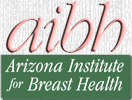There are things you can do to decrease your risk!
It is important to know what factors you can change to
decrease your risk. Making the following changes in your life will
improve your overall health and also MAY SIGNIFICANTLY
REDUCE your risk for breast cancer.
Stop Smoking.
Be aware of every resource available
so you can quit smoking - for good! Research
shows:
 |
 |
 |
 |
Smoking causes many diseases |
 |
 |
 |
Smoking is associated with an increased risk of developing
breast cancer |
 |
 |
 |
Smoking can also increase complications
from breast cancer treatment |
 |
 |
 |
Smoking can worsen radiation damage to the lung, cause
difficulty healing after surgery and increase risk of
blood clots with hormonal therapy |
 |
 |
 |
Smoking causes many diseases |
 |
 |
 |
Smoking can worsen radiation damage to the lung,
cause difficulty healing after surgery and increase
risk of blood clots with hormonal therapy |
There is Help!
Fortunately, if you're
serious about quitting, there are many
support options available. The American Cancer Society
offers their Fresh Start program to help
people quit smoking. Their "Quitline" at 1-800-ACS-2345 provides
support and access to free advice on how to stop smoking from
trained counselors.
Exercise.
Research has shown that
four hours of exercise a week
may lower the risk of breast cancer because:
 |
 |
 |
 |
Exercise lowers the estrogen levels in your body - with less
estrogen around, there is less stimulation of breast
cell growth, which is associated with a lower risk of breast cancer
|
 |
 |
 |
Exercise can also help boost the
immune system, limit weight gain from chemotherapy, and
help ease treatment side effects
|
Maintain a Healthy Weight.
Overweight women have an
increased risk of getting breast
cancer after menopause because extra fat cells make
extra estrogen that might stimulate breast cell growth.
Plus, overweight women tend to exercise less and eat higher-fat foods.
Being overweight can increase the risk of breast cancer
coming back in women who have had the disease as well.
Reduce Your Exposure to Estrogen.
Prolonged exposure to estrogen without a
break can increase your risk for
breast cancer. To reduce or eliminate sources of extra
estrogen from your diet and environment, try the following steps:
 |
 |
 |
 |
Shed any extra pounds
|
 |
 |
 |
Keep those pounds off when you do lose weight
|
 |
 |
 |
Extra fat cells make extra estrogen
|
 |
 |
 |
At a healthy weight, estrogen levels tend to be lower
|
If you have already had breast cancer, avoid taking
estrogen-like and progesterone-like products such as
menopausal hormone replacement therapy (HRT) and DHEA
(dehydroepiandrosterone). So far the increased risk of
breast cancer is most closely associated with the
combination of estrogen and progesterone pills.
Limit Alcohol Use.
Most healthcare providers agree that the use of alcohol
can increase the risk of breast cancer. In a 2002 study,
conducted by Paul Terry, PhD, of Albert Einstein College
of Medicine analyzed dietary and beverage
habits of over 60,000 women and found that those who
consumed alcohol had a 30% higher risk of
developing breast cancer, compared to women who did not drink.
Many people choose to stop drinking
alcohol completely, but if you enjoy alcoholic
beverages and plan to continue using them, try to
have fewer than five alcoholic drinks a week. Significant
alcohol use is unhealthy for your liver, which helps
regulate estrogen levels in your system. So limiting
your alcohol use helps your liver keep blood estrogen levels low.
Restrict Some Foods.
Restrict sources of red meat and other animal fats
(including dairy fat in cheese, milk, and ice cream),
because they may contain hormones, other growth factors,
antibiotics, and pesticides.
Consider Having Children Sooner.
If circumstances allow, consider having children
sooner rather than later in life. A full-term pregnancy,
which stops your menstrual cycle for nine months, seems
to offer protection against breast cancer. Pregnancy
produces a blend of several hormones that forces breast
cells to "mature" and learn how to make milk. When
this happens, they have less time to act
out and cause problems-like starting
a cancer. Estrogen is in the mix of the hormonal blend,
but the other hormones seem to balance out its effects.



